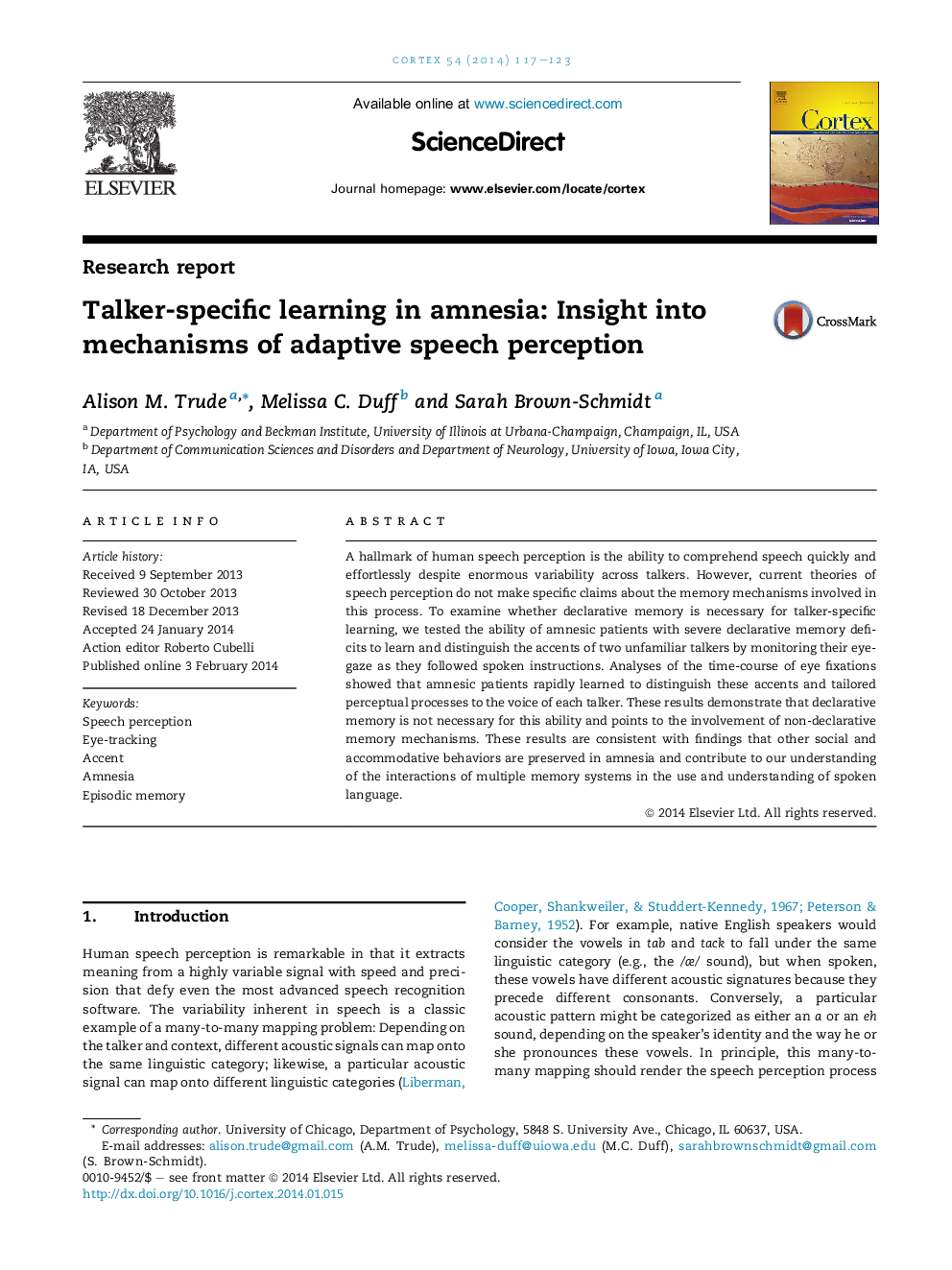| Article ID | Journal | Published Year | Pages | File Type |
|---|---|---|---|---|
| 7315761 | Cortex | 2014 | 7 Pages |
Abstract
A hallmark of human speech perception is the ability to comprehend speech quickly and effortlessly despite enormous variability across talkers. However, current theories of speech perception do not make specific claims about the memory mechanisms involved in this process. To examine whether declarative memory is necessary for talker-specific learning, we tested the ability of amnesic patients with severe declarative memory deficits to learn and distinguish the accents of two unfamiliar talkers by monitoring their eye-gaze as they followed spoken instructions. Analyses of the time-course of eye fixations showed that amnesic patients rapidly learned to distinguish these accents and tailored perceptual processes to the voice of each talker. These results demonstrate that declarative memory is not necessary for this ability and points to the involvement of non-declarative memory mechanisms. These results are consistent with findings that other social and accommodative behaviors are preserved in amnesia and contribute to our understanding of the interactions of multiple memory systems in the use and understanding of spoken language.
Related Topics
Life Sciences
Neuroscience
Behavioral Neuroscience
Authors
Alison M. Trude, Melissa C. Duff, Sarah Brown-Schmidt,
